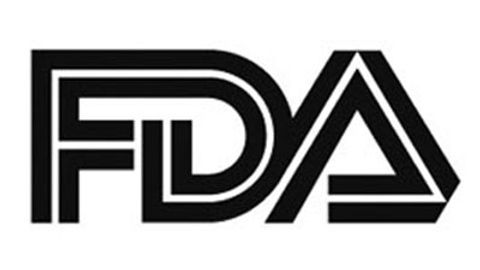FDA Approval Being Considered for Neoadjuvant/Adjuvant Pembrolizumab +/- Chemo in Early TNBC
The FDA has accepted a supplemental Biologics License Application submitted for neoadjuvant pembrolizumab combined with chemotherapy and adjuvant pembrolizumab monotherapy for the treatment of patients with high-risk early-stage triple-negative breast cancer.

The FDA has accepted a supplemental Biologics License Application (sBLA) submitted for neoadjuvant pembrolizumab (Keytruda) combined with chemotherapy and adjuvant pembrolizumab monotherapy for the treatment of patients with high-risk early-stage triple-negative breast cancer (TNBC).1
The sBLA was accepted for a standard review and was given a Prescription Drug Fee User target action date of March 29, 2021.
“There is a real need to advance new treatment options for triple-negative breast cancer, an aggressive form of the disease. The FDA’s acceptance of these KEYTRUDA applications for review is an important step toward helping patients with both early-stage and metastatic disease,” said Roy Baynes, MD, PhD, senior vice president and head of global clinical development, chief medical officer, Merck Research Laboratories, in a statement. “These acceptances mark the first United States applications for KEYTRUDA in breast cancer, and we look forward to working closely with the FDA to bring these new options to patients as quickly as possible.”
The application was submitted based on results from 2 clinical trials, the phase 3 KEYNOTE-355 trial, and the phase 3 KEYNOTE-522 trial. KEYNOTE-355 was conducted in 847 patients with previously untreated locally recurrent inoperable or metastatic TNBC and KEYNOTE-522 was conducted in 784 patients with early TNBC. Both studies were randomized and double-blind. KEYNOTE-355 was also placebo-controlled and assessing the co-primary end points, progression-free survival (PFS), and overall survival (OS). The secondary end points of the study include objective response rate, duration of response, disease control rate, and safety.1-3
The coprimary end points of KEYNOTE-522 was partial complete response (PCR) rate and event-free survival (EFS). The study also explored PCR at time of definitive surgery, OS, and EFS.
Efficacy of Pembrolizumab Plus Chemotherapy
Results from KEYNOTE-355 were presented during the 2020 American Society of Clinical Oncology (ASCO) Virtual Scientific Program. As previously reported by Targeted Oncology, KEYNOTE-355 showed a trend toward progression-free survival benefit with the combination of pembrolizumab plus nab-paclitaxel chemotherapy compared to chemotherapy alone. The trend was consistent in the cohorts of patients with PD-L1 CPS ≥ 10, PD-L1 CPS ≥ 1, and in the intent-to-treat (ITT) population.2
Two-hundred fifteen PFS events were observed in the PD-L1 CPS ≥ 10 cohort. The median PFS was 9.7 months in the pembrolizumab/chemotherapy arm compared with 5.6 months in the single-agent arm (HR, 0.65; 95% CI, 0.49-0.86; one-sided P =.0012).
The PD-L1 CPS ≥ 1 cohort had 450 PFS events. Median PFS was 7.6 months for the pembrolizumab/chemotherapy arm versus 5.6 months for the chemotherapy arm (HR, 0.74; 95% CI, 0.61-0.90; one-sided P =.0014). The PFS results were not statistically significant, according to the prespecified criteria.
Patients in the ITT cohort showed 602 PFS events with a median PFS of 7.5 months in the pembrolizumab arm versus 5.6 months with chemotherapy alone (HR, 0.82; 95% CI, 0.69-0.97).
In KEYNOTE-522, an efficacy benefit was also observed with pembrolizumab in terms of PCRs in the pembrolizumab plus chemotherapy arm versus the single-agent arm. Specifically, complete responses were observed in 64.8% of patients in the combination arm versus 51.2% in the chemotherapy arm. The result met the prespecified criteria for statistical significance in favor of pembrolizumab plus chemotherapy.3
The positive result observed in the general population of patients in KEYNOTE-522 was also seen across the subgroup populations enrolled in the study. In detail, pembrolizumab plus chemotherapy benefitted patients regardless of nodal status, tumor size, PD-L1 status, age, and ECOG performance score.
Safety of Pembrolizumab Plus Chemotherapy
Patients treated with the pembrolizumab combination and chemotherapy in KEYNOTE-355 experienced a similar number of treatment-related adverse events (AEs; 96.3% vs. 95%, respectively). About 68% of patients treated with pembrolizumab plus chemotherapy had grade 3-5 treatment-related AEs were seen in versus 66.9% of those who received chemotherapy alone. Not many treatment-related AEs led to death in the pembrolizumab arm, and there were none in the single-agent chemotherapy arm. For any study drug, 18.1% of treatment-related AEs led to discontinuation in the pembrolizumab arm, as did 11.0% in the chemotherapy arm.2
The most common AEs in the pembrolizumab and control arms included anemia (48.9% vs. 45.9%), neutropenia (41.1% vs. 38.1%), nausea 39.3% vs. 40.9%, alopecia (33.1% vs. 33.5%), fatigue (28.5% vs. 29.5%), neutrophil count decrease (22.2% vs. 26.3%), and alanine transferase increase (20.5% vs. 16.4%).
In KEYNOTE-522, 99.0% of the combination arm and 99.7% of the monotherapy arm experienced any-grade AEs. Treatment-related AEs were mostly observed during the neoadjuvant phase, compared with the adjuvant phase. The most common treatment-related AEs in the combination arm versus the chemotherapy arm were nausea (62.7 v vs. 63.2%), alopecia (60.3% vs. 56.6%), and anemia (55.1% vs. 55.3%).3
In addition to accepting the sBLA for pembrolizumab combined with chemotherapy and adjuvant pembrolizumab monotherapy for the treatment of patients with high-risk early-stage TNBC, the FDA also granted Priority Review to a sBLA for the combination of pembrolizumab and chemotherapy, as patients with metastatic TNBC.1
References:
1. Merck Announces Two US Regulatory Milestones for KEYTRUDA® (pembrolizumab) in Triple-Negative Breast Cancer (TNBC). News release. Merck. July 30, 2020. Accessed July 30, 2020. https://bwnews.pr/2CUm9gR
2. Cortes J, Cescon DW, Rugo HS, et al. KEYNOTE-355: Randomized, double-blind, phase III study of pembrolizumab + chemotherapy versus placebo + chemotherapy for previously untreated locally recurrent inoperable or metastatic triple-negative breast cancer. J Clin Oncol 2020: 38 (suppl; abstr 1000). doi: 10.1200/JCO.2020.38.15_suppl.1000
3. Schmid P, Cortes J, Pusztai H, et al. Pembrolizumab for early triple-negative breast cancer. N Engl J Med. 2020. 382(19):810-21. DOI: 10.1056/NEJMoa1910549